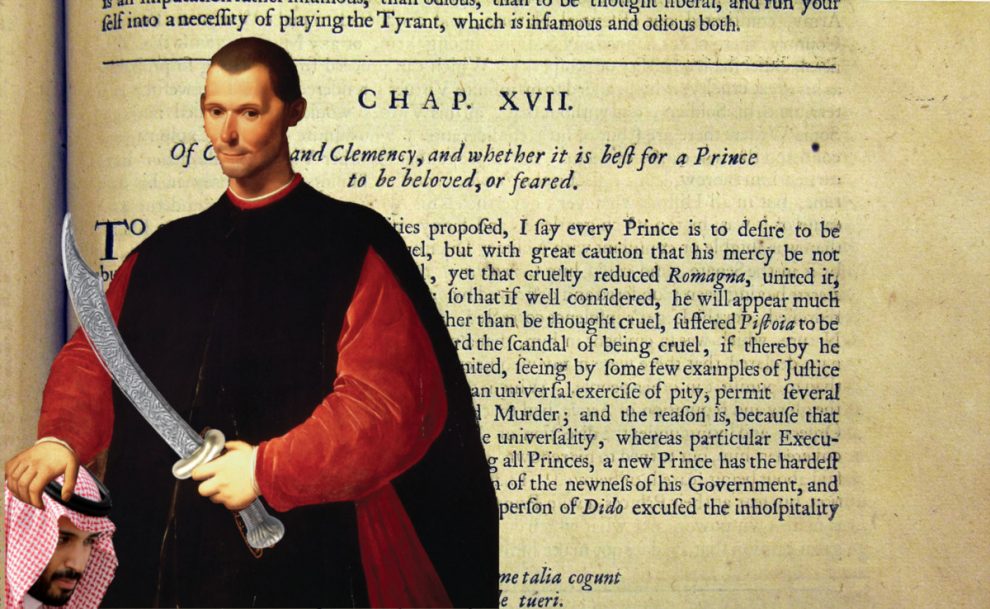The Khashoggi story is another shadowy case of Saudi Arabia under the power of the new Crown Prince, containing many unanswered questions and terrifying assumptions
When I look at Mohammad bin Salman’s (also widely known as MBS) short record as the Saudi crown prince, I wonder if Macchiavelli’s “The Prince” is one of his favorites by any chance. Because I believe, MBS’s de facto reign provides a perfect case for the famous Machiavellian motto, “It is much safer to be feared than loved.”
Immediately after his appointment as the crown prince, MBS tried to win public approval by ordering a pay raise, reversing the pay cuts from the previous year due to fuel prices and also by introducing some reforms that advanced the presence of youth and women in society.
Subsequently, he kicked off a colossal boycott and blockade of Qatar along with his allies. Soon after, the verdicts to imprison or execute spiritual and intellectual leaders climbed, which only consolidated the “reformist prince” image since his acts were represented to the West as a fight against radicalism and corruption.
However, the wave of detentions – involving 11 princes, four ministers and several influential businessmen – started stirring some doubts. Meanwhile, all the security forces, including the National Guard Forces were ordered to answer directly to him.
The crown prince retorted to the rising objections by saying that he vowed to return the kingdom to “moderate Islam.” Then, he attempted to obviate the hesitations with a thorough PR tour that encompassed the Queen of England, the Anglican Church, Silicon Valley and even Hollywood.
From the military intervention in Yemen to the diplomatic spat with Canada, the only thing MBS has not done since was to surprise those following his actions. If unpredictability is a strategy, MBS has surely followed a route that sets the best examples of it. But at what cost?
Saudi journalist Jamal Khashoggi’s case is full of questions that cannot be answered by the Saudi administration. There are dozens of inexplicable points, such as the absence of CCTV footage and the mysterious arrival and departure of a 15-person team in Istanbul on the day of the incident. The team, which included Saudi officials, arrived in Istanbul just eight hours before the incident and it left the same day in the evening. Not only Turkey but the whole world is waiting to hear the answers to these questions.
In one of his last interviews, Khashoggi, who is known for his moderate criticisms of MBS’s policies, said, “We just need a little room to breathe.” Did this cause the incident? If they really wanted to risk Saudi Arabia’s reputation by becoming identified as the only country to have killed one of its own citizens and a journalist in its consulate – as the allegations indicate – then it must be made clear that the Saudi people do not deserve such a disgrace.
As Machiavelli put it, “And yet we cannot define as skillful killing one’s fellow citizens, betraying one’s friends, and showing no loyalty, mercy, or moral obligation. These means can lead to power, but not glory.”
Source: Daily Sabah







Add Comment